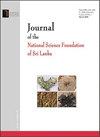Artificial Intelligence framework for threat assessment and containment for COVID-19 and future epidemics while mitigating the socioeconomic impact to women, children, and underprivileged groups
IF 0.4
4区 综合性期刊
Q4 MULTIDISCIPLINARY SCIENCES
Journal of the National Science Foundation of Sri Lanka
Pub Date : 2022-11-10
DOI:10.4038/jnsfsr.v50i0.11242
引用次数: 0
Abstract
With the emergency situation that arises with COVID-19, the intense containment strategies adopted by many countries had little or no consideration towards socio-economic ramifications or the impact on women, children, socioeconomically underprivileged groups. The existence of many adverse impacts raises questions on the approaches taken and demands proper analysis, scrutiny and review of the policies. Therefore, a framework was developed using the artificial intelligence (Al) techniques to detect, model, and predict the behaviour of the COVID-19 pandemic containment strategies, understanding the socio-economic impact of these strategies on identified diverse vulnerable groups, and the development of AI-based solutions, to predict and manage a future spread of COVID or similar infectious disease outbreaks while mitigating the social and economic toil. Based on generated behaviour and movements, Al tools were developed to conduct contact tracing and socio-economic impact mitigation actions in a more informed, socially conscious and responsible manner in the case of the next wave of COVID-19 infections or a different future infectious disease. © 2022, National Science Foundation. All rights reserved.人工智能框架,用于新冠肺炎和未来流行病的威胁评估和遏制,同时减轻对妇女、儿童和弱势群体的社会经济影响
在COVID-19引发的紧急情况下,许多国家采取的密集遏制战略很少或根本没有考虑到社会经济后果或对妇女、儿童、社会经济弱势群体的影响。许多不利影响的存在使人们对所采取的办法产生疑问,并要求对这些政策进行适当的分析、审查和审查。因此,使用人工智能(Al)技术开发了一个框架,以检测、建模和预测COVID-19大流行遏制策略的行为,了解这些策略对已确定的不同弱势群体的社会经济影响,并开发基于人工智能的解决方案,以预测和管理未来COVID-19或类似传染病爆发的传播,同时减轻社会和经济负担。根据产生的行为和运动,开发了人工智能工具,以便在下一波COVID-19感染或未来不同传染病的情况下,以更知情、更有社会意识和更负责任的方式开展接触者追踪和社会经济影响缓解行动。©2022,美国国家科学基金会。版权所有。
本文章由计算机程序翻译,如有差异,请以英文原文为准。
求助全文
约1分钟内获得全文
求助全文
来源期刊

Journal of the National Science Foundation of Sri Lanka
MULTIDISCIPLINARY SCIENCES-
CiteScore
0.90
自引率
0.00%
发文量
57
审稿时长
>12 weeks
期刊介绍:
The Journal of National Science Foundation of Sri Lanka (JNSF) publishes the results of research in Science and Technology. The journal is released four times a year, in March, June, September and December. This journal contains Research Articles, Reviews, Research Communications and Correspondences.
Manuscripts submitted to the journal are accepted on the understanding that they will be reviewed prior to acceptance and that they have not been submitted for publication elsewhere.
 求助内容:
求助内容: 应助结果提醒方式:
应助结果提醒方式:


